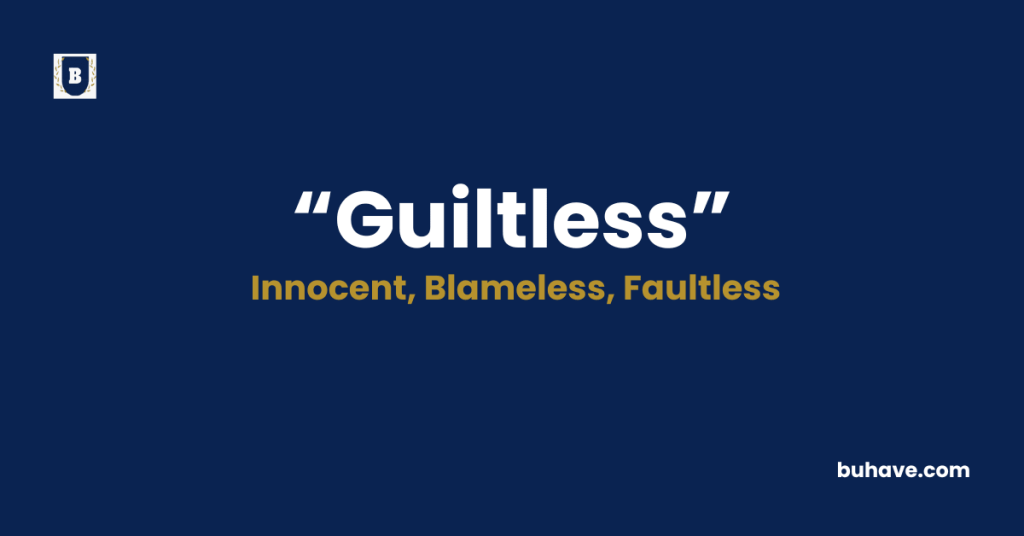The word guiltless (Adjective) describes someone who is free from guilt, blame, or wrongdoing. It signifies innocence and a lack of responsibility for any fault or misconduct. In this guide, you’ll learn the full definition, synonyms, antonyms, etymology, and real-life examples of how to use guiltless correctly in sentences.
Guiltless Explained in Depth
A complete and detailed guide to the word guiltless, including meaning, definition, examples, etymology, synonyms, and antonyms.
Meanings of Guiltless
Guiltless means not responsible for any crime, error, or offense. It implies a state of moral, legal, or emotional innocence and is often used in both legal and everyday contexts to describe someone who has done nothing wrong.
Definition
Guiltless refers to a person or action that is free from blame, fault, or sin. It may describe someone legally innocent, morally upright, or emotionally free from feelings of guilt. The term emphasizes purity, integrity, and the absence of wrongdoing or accusation.
Etymology
The word guiltless is formed by combining “guilt” (from Old English gylt, meaning “crime” or “offense”) with the suffix “-less,” meaning “without.” It dates back to Middle English and has long been used to express the absence of wrongdoing or moral failing.
Example Sentences
- The jury found her guiltless after reviewing the evidence.
- He walked away guiltless, having told the full truth.
- Children are often seen as guiltless in matters they don’t understand.
Guiltless Synonyms
- Innocent
- Blameless
- Faultless
- Irreproachable
- Pure
- Clean
- Unimpeachable
- Upright
- Exonerated
- Unaccused
Guiltless Antonyms
- Guilty
- Blameworthy
- Culpable
- Reprehensible
- Sinful
- Wrongdoer
- Accused
- Condemned
- Impure
- Dishonest
FAQs about Guiltless
Here are some FAQs (Frequently Asked Questions) about the word “Guiltless”
1. What does “guiltless” mean?
It means free from guilt, fault, or wrongdoing.
2. Is “guiltless” the same as “innocent”?
They are similar, but “guiltless” emphasizes the absence of guilt or blame, while “innocent” often refers to purity or lack of knowledge as well.
3. Can someone feel guiltless but still be guilty?
Yes, someone may feel guiltless internally even if they are responsible for wrongdoing externally.
4. Is “guiltless” a legal or moral term?
It can be used in both legal and moral contexts to describe someone without blame.
5. Can “guiltless” describe actions as well?
Yes, it can describe both people and actions that are free from fault or harm.

















